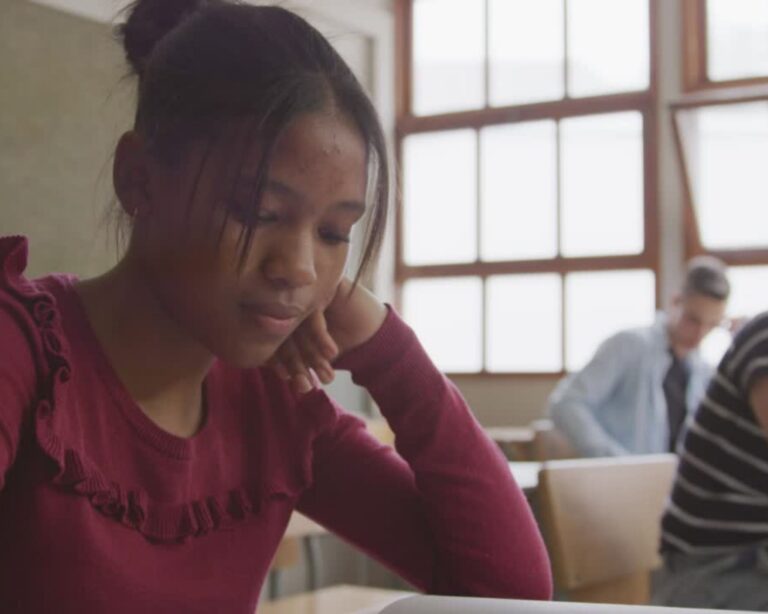
Confidence is the belief in your abilities, qualities, and judgment. It plays a significant role in achieving personal goals, fostering healthy relationships, and maintaining a positive outlook on life. Building confidence, both in yourself and in others, is a continuous process that requires practice, patience, and a supportive environment. Here are some effective ways to build confidence in yourself and others:
Building Confidence in Yourself
- Set Realistic Goals
- Start with small, achievable goals. Success in accomplishing smaller tasks boosts your confidence and sets you up for more significant achievements. Celebrate every success, no matter how minor it may seem, and build on that momentum toward bigger challenges.
- Focus on Your Strengths
- Instead of dwelling on your weaknesses, focus on your strengths and unique abilities. Identify what you do well and embrace it. By recognizing and appreciating your own talents, you’ll feel more confident in your ability to handle challenges.
- Practice Self-Compassion
- Be kind to yourself. Everyone makes mistakes, and no one is perfect. Rather than criticizing yourself, practice self-compassion by treating yourself with the same kindness you would offer a friend. Accept your flaws, learn from setbacks, and continue to move forward with a positive attitude.
- Learn New Skills
- Expanding your knowledge and skillset can boost your confidence significantly. Whether it’s learning a new language, improving your public speaking skills, or mastering a hobby, the more you grow and develop, the more confident you’ll feel about your capabilities.
- Practice Positive Self-Talk
- The way you talk to yourself matters. Replace negative thoughts with positive affirmations. For instance, instead of thinking, “I can’t do this,” try saying, “I am capable of learning and improving.” Positive self-talk reinforces a mindset of self-belief and can help you overcome self-doubt.
- Step Out of Your Comfort Zone
- Challenge yourself regularly. Stepping out of your comfort zone and trying new things can be intimidating, but it’s also an opportunity for growth. Whether it’s speaking up in a meeting, taking on a new responsibility, or trying a new activity, each experience helps to build confidence.
- Maintain Good Posture
- Your body language has a powerful effect on how you feel and how others perceive you. Stand tall, walk with purpose, and make eye contact. Good posture not only conveys confidence to others but also triggers positive feelings within yourself.
- Surround Yourself with Positive Influences
- The people you spend time with have a significant impact on your confidence. Surround yourself with supportive, encouraging individuals who believe in you and your potential. Avoid people who constantly undermine your self-esteem or create negativity.
- Take Care of Your Body
- Physical health plays an important role in building mental confidence. Exercise regularly, eat healthily, and get enough rest. When you feel good physically, it naturally enhances your mental and emotional well-being, helping you feel more confident.
- Visualize Success
- Mental imagery can improve confidence. Before taking on a task, spend a few minutes visualizing yourself succeeding. Imagine the positive feelings you will have when you accomplish the goal, which can reduce anxiety and reinforce your belief in yourself.
Building Confidence in Others
- Acknowledge Their Strengths
- Encourage others by recognizing their strengths. When you notice someone’s abilities or positive traits, let them know. A simple compliment or recognition can make them feel valued and boost their self-esteem.
- Provide Constructive Feedback
- Give feedback in a positive, supportive way. Instead of focusing on mistakes, highlight areas of improvement while also pointing out what they’re doing well. Offer guidance on how to improve and help them see their potential for growth.
- Be a Supportive Listener
- Sometimes, people just need someone to listen. Be present and listen actively when others express concerns, ideas, or feelings. Your attentive ear shows that you respect their thoughts and value their input, which can foster confidence.
- Encourage Risk-Taking and Growth
- Support others in stepping out of their comfort zones. Encourage them to take on new challenges, try new experiences, and embrace opportunities for growth. Knowing that someone believes in them helps them feel confident in their ability to handle challenges.
- Model Confidence
- Confidence is contagious. Demonstrate confidence in your own actions by taking risks, speaking up, and embracing challenges. When others see you displaying self-assurance, they are more likely to mirror that behavior and build their own confidence.
- Offer Praise and Recognition
- Recognize the efforts and achievements of others. Celebrate even small successes. By providing positive reinforcement, you remind others of their capabilities and encourage them to continue striving toward their goals.
- Create a Safe and Supportive Environment
- Foster an atmosphere where people feel safe to express themselves without fear of judgment. Create spaces for open communication, where individuals feel comfortable sharing their thoughts, asking questions, and making mistakes. This safety fosters self-esteem and confidence.
- Be Patient and Encouraging
- Building confidence takes time, and it’s important to be patient with others as they work through challenges. Encourage perseverance and emphasize that failure is a natural part of growth. Your support in times of struggle can make a huge difference in their self-confidence.
- Help Set Achievable Goals
- Encourage others to set clear, attainable goals. Help them break down larger tasks into manageable steps, and celebrate each milestone. Achieving goals, no matter how small, boosts confidence and motivates individuals to keep progressing.
- Empower Others
- Give people opportunities to take responsibility and lead. When others are empowered to make decisions and take ownership of tasks, they feel more capable and self-assured. This sense of autonomy contributes to greater confidence in their abilities.
Conclusion
Building confidence in yourself and others is an ongoing journey that requires practice, support, and a positive mindset. By setting achievable goals, focusing on strengths, practicing self-compassion, and surrounding yourself with supportive people, you can cultivate your own confidence. Similarly, by acknowledging others’ strengths, providing constructive feedback, and creating a supportive environment, you can help build confidence in those around you. Ultimately, confidence not only enhances personal growth and success but also strengthens relationships and creates a positive, encouraging environment for everyone involved.






